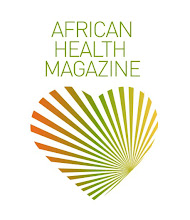
So five years ago you joined the millions of spectacle-wearers across the globe. Beginning with the thick, round frames, both your wallet and your fashion-sense later discovered the beauty of rectangular designer frames, and the ingenious invention of thinned lenses! Then, when your lifestyle became more hectic and sociable, you decided you needed a change - contact lenses.
Contact lenses come in loads of different types: daily disposable wear, fortnightly or monthly disposable wear, day/night sleep in lenses, and some others suitable for astigmatism. No matter what type of lens you have you need to ensure that your eye health is maintained because if you’re not careful, contact lenses can do you more harm than good!
Some tips/reminders for all of you out there:
DON’T sleep in contact lenses, ESPECIALLY if they are not the day/night ones.
Sometimes you may doze off in them, but make sure that as soon as you wake up or remember, you take them out and throw them away (if they are daily disposables) or clean them (if they are continuous wear).
WASH your hands before you put the lenses in
Be careful which handwash or soap you use – perfumed handwashes can irritate your eyes, so just wash that little bit extra to get that residue off. If you’re in a tight spot or a tricky location with nowhere to wash your hands, do NOT think that by licking your finger it will clean them – your saliva contains a host of bacteria that will actually damage your eye so if you can’t find water, don’t wear the contacts.
Use SOLUTION not tap water
Always use the proper contact lens solution, and never your saliva, homemade saline solution or tap water to clean your contacts or re-wet them. Never reuse lens solution either!
Get regular CHECK-UPS at your opticians
This is especially important if you have extended wear lenses, but whichever lens you wear, make sure you get an eye test regularly.
And if you’re careless with your contact lenses?
If you don’t look after your eyes whilst you wear contact lenses, you’re at risk of different bacterial infections, diseases and abrasions which, if left untreated, could lead to blindness.
There are three main ‘contact lens diseases’:
Corneal Neovascularization – ingrowth of blood vessels into the cornea.
In other words: may not notice at first, but increased redness of the eye, may experience eye pain, decreased vision, light sensitivity and/or contact lens intolerance.
Giant Papillary Conjunctivitis – repeated irritation of the conjunctiva of the eye.
In other words: Think mucus, mucus, more mucus, itching, light sensitivity and some more mucus. Not a pretty disease to have.
Corneal Ulcers – an open sore on the cornea caused by infection.
In other words: Pain, pain, more pain, blurred vision, light sensitivity, swollen eyelids, intensive medication treatment.
If you experience any of the symptoms above, or just generally have some concerns, go to see your optician or an optometrist as soon as you can.
So, advice from African Health is: look after your eyes, because you only have two!
Samantha Chioma












